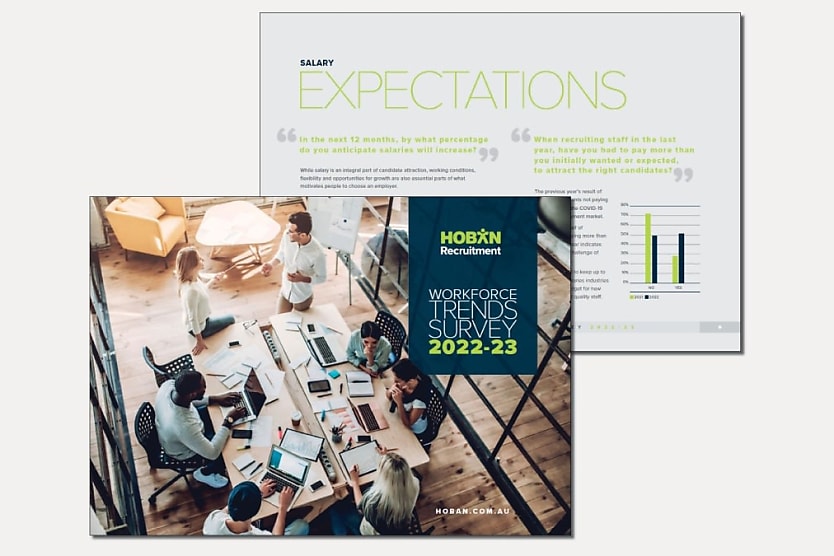HOBAN survey highlights a win for workers
SHARE THIS ARTICLE

Alison Watts, CEO of HOBAN Recruitment, says their 2022/23 Workforce Trends Report is important for understanding the power employees have in the current work climate, as well as things employers can do to attract and retain staff.
The company surveyed a selection of Australian employers to get an insight into how they run their businesses.
“We sent this survey because we want to be able to help all employers with insights and information that will help them in their businesses. To keep across the latest trends, to see aspects, innovation and initiatives that might be emerging so that they themselves can incorporate some of those initiatives into their businesses and be mindful of trends when they're looking at hiring and engaging staff,” said Ms Watts.
HOBAN attributes the pandemic as affecting the employment market in recent years.
72 per cent of respondents did not increase wages to attract talent in 2021, whereas 51 per cent of respondents said they had to pay more to staff than they expected to in 2022. Organisations may be increasing salaries to attract and retain staff.
“We've seen that wage pressure within the marketplace. The fact that there are many more advertisements these days than there are employees looking for work, with the low unemployment that we have currently, that statistic wasn't overly surprising.” explained Ms Watts.
According to the HOBAN’s survey, half of employers expected to increase staff in the next 12 months. This contrasts the reduction in staff businesses had to make through the pandemic.
“We are working with people looking for work every day, so it's very positive to be able to share with them that, in general, hiring trends are very positive,” said Ms Watts.
“Coupled with the fact that 67 per cent of employers are saying that if people don't have all the skills, they're comfortable as long as they have the right attitude. That makes us very excited in the marketplace because it gives us an indication that people are [thinking] long term.”
With these results, it may seem hard for employers to have control over their attraction and retention. Ms Watts gave insight into the actions employers can take to stay ahead, noting that increasing wages is not always an appropriate method.
“It's really around if employers can very clearly verbalise why their business is a good place to work. It's speaking clearly to the people that you want to attract to your business and letting them know why this is the right fit for them.”
“Employers are happy to engage people who are the right match to their team. So, it's making clear and actually trying to explain what sort of a team and business it is. That and if you are offering any training or development opportunities,” she said.
Speaking to staff and understanding their needs can help with retention and attraction. Ms Watts encourages involving long-term employees in recruitment for not only their experience, but as a way to understand why they’re still engaged with the company.
“There has to be reasons [why they’ve stayed]. We all as employers have to get better at actually explaining those reasons and making them resonate with a potential candidate to help them attract people into their business,” she explained.
“The other thing I would emphasise would be moving quickly in this market because when you find somebody good, it's really great to make an offer to that person quickly because all people are in demand and the market's moving very fast.”
Read the full Workforce Trends Report here.
The HR Leader’s conversation with Alison Watts was on 5 August. The transcript of this podcast episode, when quoted above, was slightly edited for publishing purposes. The full conversation with Alison Watts is below.
RELATED TERMS
The practice of actively seeking, locating, and employing people for a certain position or career in a corporation is known as recruitment.
Jack Campbell
Jack is the editor at HR Leader.

